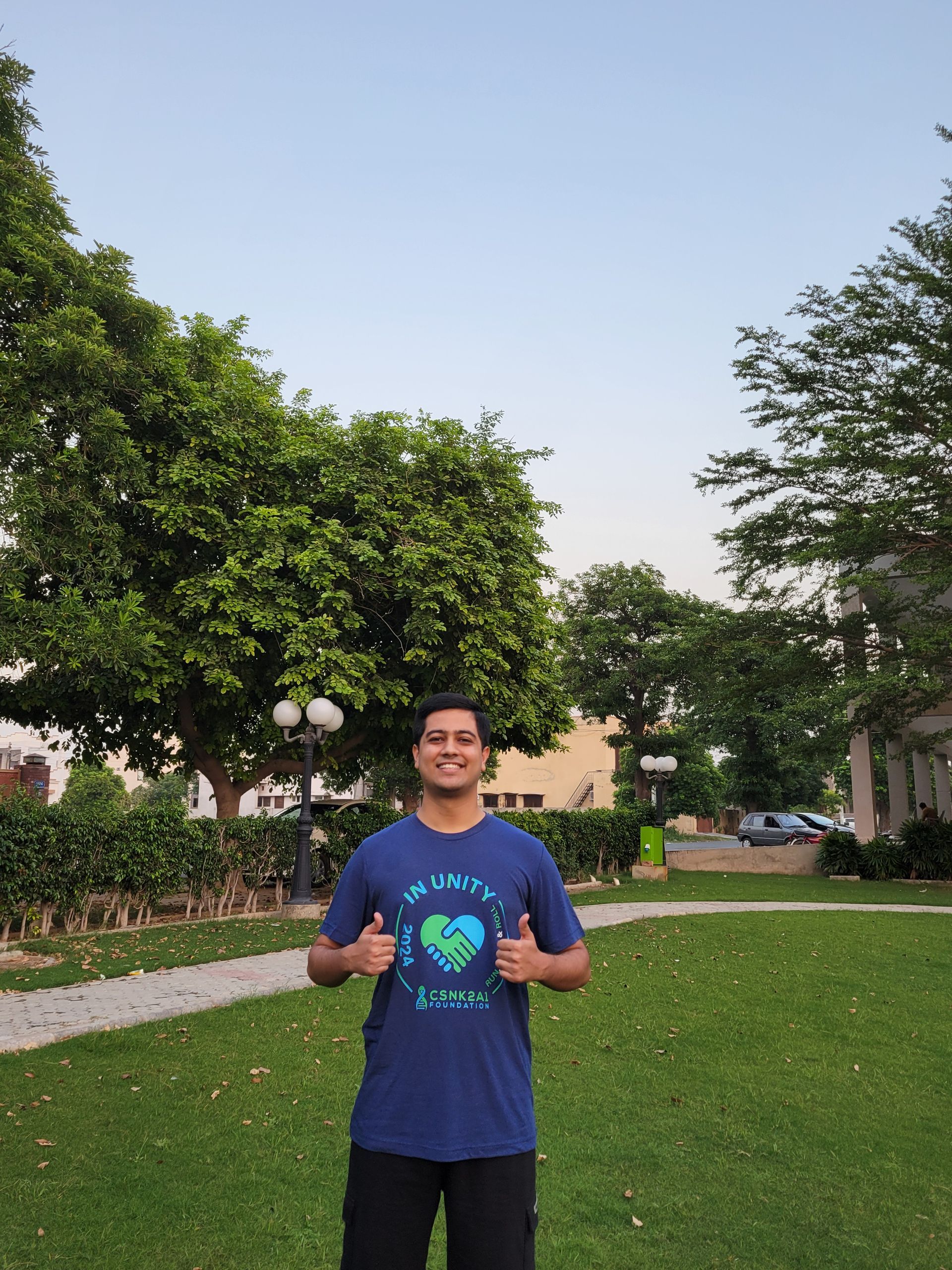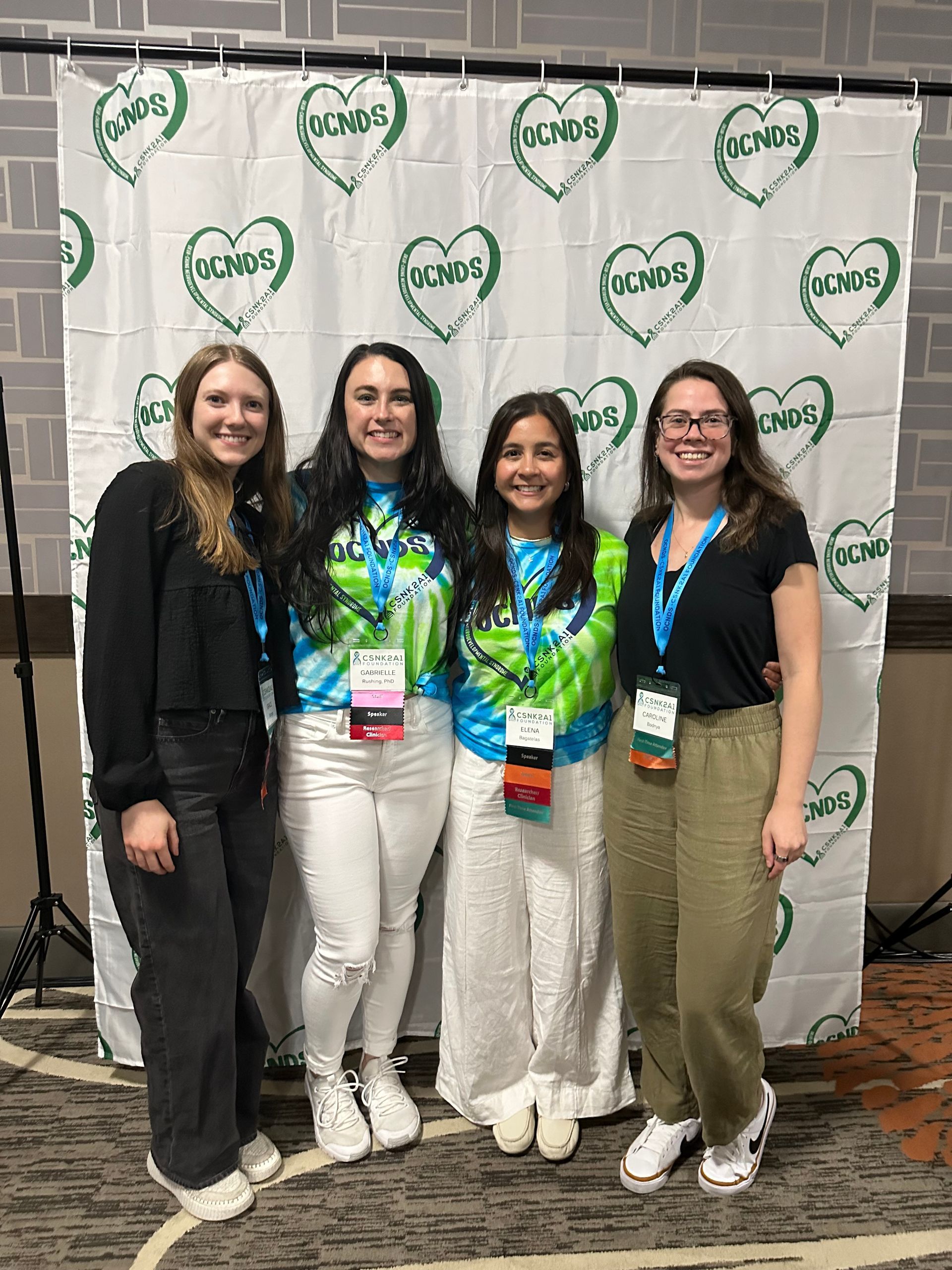From Pakistan to Global Partnership: How One Medical Student Helped Inspire a Growing Rare Disease Internship Program
In 2022, the CSNK2A1 Foundation’s Founder and President, Jennifer Sills, joined the Global Genes RARE Compassion Project, the first international educational program designed to pair medical students with rare disease families to deepen understanding and empathy. Through this initiative, she was matched with Maahin Manzoor Khan, a medical student at Shifa College of Medicine in Islamabad, Pakistan. Over the course of three months of virtual meetings, the two discovered a shared mission: to bridge the gap between the medical community and families affected by rare diseases. Their partnership became the spark for what would grow into the CSNK2A1 Foundation Internship Program, led by Dr. Gabrielle Rushing, the Foundation’s Chief Scientific Officer.
A Conversation with Maahin Manzoor Khan
Early Inspiration
Q: Can you share a bit about your educational journey and what drew you to rare diseases?
Maahin: I completed my Bachelor of Medicine and Surgery degree from Shifa College of Medicine in 2024. My interest in rare diseases grew as I learned how easily these conditions can be overlooked. It isn’t about a lack of compassion. It’s about the limits of our training and how diverse symptoms can appear unrelated when the underlying connections aren’t yet established. Working with this organization helped me see that more clearly. It showed me how essential it is for future clinicians to think beyond traditional symptom categories and to approach medicine with the curiosity of a physician-scientist. That perspective is what draws me to this field and keeps me committed to improving rare disease awareness.
Connecting Through Global Genes
Q: What was it like meeting Jennifer through the RARE Compassion Project?
Maahin: Meeting Jennifer through the RARE Compassion Project was eye opening. Hearing her story. The uncertainty, the misdiagnoses, and the years spent searching for answers. It all underscored how essential it is for physicians to listen carefully to families. In Pakistan, limited access to genetic testing means many rare diseases hide behind symptom-based treatment. What stayed with me most was the emotional commitment Jennifer and her daughter brought to every conversation. Their dedication became a source of inspiration for me and pushed me to support this cause with even greater purpose.
Joining the Foundation
Q: How did this connection lead to your internship with the CSNK2A1 Foundation?
Maahin: Jennifer and I stayed in touch after the program ended. I wanted to continue learning about OCNDS and rare disease research. She introduced me to Dr. Gabrielle Rushing, and I joined as one of her first interns.
Working with Dr. Rushing was a great experience. She brings deep expertise and a strong commitment to mentorship. I helped with patient data analysis, early-stage research discussions, and now am working on clinical case reports. It was the first time I saw how patient stories directly shape research priorities.
The Power of Global Mentorship
Q: What was it like collaborating with a U.S. based foundation from Pakistan?
Maahin: Collaborating with a U.S.-based foundation from Pakistan came with real hurdles. Time zones, internet limitations, and restricted access to some databases all made the work harder. But having leadership and mentorship that stayed accessible made the transition surprisingly smooth. What also stood out to me was the diversity within the internship program itself. Interns come from many countries, cultures, and backgrounds, yet we’re all working toward the same goal. That sense of shared purpose made the distance feel smaller and the experience far more meaningful.
On Access and Opportunity
Q: Do you think you would have had the same opportunity if you had just reached out to a U.S. foundation directly?
Maahin: Honestly, probably not. The Global Genes program opened a door that wouldn’t have existed otherwise. As a student in Pakistan, there’s often no clear path to reach U.S. organizations, not because of lack of talent, but because of limited access, funding, and visibility.
That’s why I think programs like Global Genes, and now the CSNK2A1 Foundation’s internship program under Dr. Rushing, are so important. They make it possible for students like me to engage with researchers and, more importantly, with the real families who inspire it.
Looking Ahead
Q: How has this experience shaped your future goals?
Maahin: This experience clarified the path I want to pursue. I hope to train as a clinician in the United States and become a strong advocate for rare disease awareness, especially in Pakistan. During my internship, I also encountered a unique neurodevelopmental case outside of the Foundation’s work. Navigating that situation showed me how tightly connected the rare disease world is and how often families struggle to find the right pathways on their own. It made me even more committed to building global bridges, raising awareness, and helping families reach the organizations that can support them. I want to be part of a future where ‘rare’ feels seen, understood, and never isolated.
Why Dr. Rushing Believes in Mentorship
For Dr. Gabrielle Rushing, the Foundation’s Chief Science Officer, the decision to build an internship program was deeply personal. Her own scientific journey began as an intern, a formative experience that gave her the mentorship, exposure, and confidence to pursue a career in neuroscience and rare disease research. She knows firsthand how a single opportunity can ignite a lifelong passion for discovery.
That early experience shaped her belief that mentorship is one of the most powerful tools for accelerating science. When Dr. Rushing joined the CSNK2A1 Foundation, she wanted to pay that forward by creating a space where students could learn the “why” behind the science, not just the methods. She envisioned a program that would give students hands on exposure to translational research while keeping them grounded in the stories of the families driving that work.
Under her leadership, the Foundation’s internship program has flourished, welcoming students from across the globe, from California to Pakistan. We shape every internship around the individual - what they’re curious about, the time they can commit, and where their skills fit within our current priorities.
“Being an intern changed the course of my career,” Dr. Rushing often says. “If we can offer that same spark to someone else, especially students who might not otherwise have access, then we’re not just mentoring researchers, we’re training future advocates.”
A Legacy of Collaboration
What began as a single pairing through Global Genes has blossomed into a robust internship program at the CSNK2A1 Foundation, has now welcomed 19 interns and counting from around the world. Under Dr. Rushing’s leadership, the program provides hands-on experience in research, patient engagement, and science communication, empowering the next generation of rare disease leaders. Dr. Rushing reflects, “Our work with Maahin showed us what’s possible when we connect across borders and backgrounds. His dedication helped shape the vision for our internship program, one that gives students the chance to contribute meaningfully to the future of OCNDS research, no matter where they live.”
Closing Thought
Maahin’s journey is a reminder that innovation often begins with empathy, and that when global collaboration meets shared purpose, boundaries fade and hope grows.


